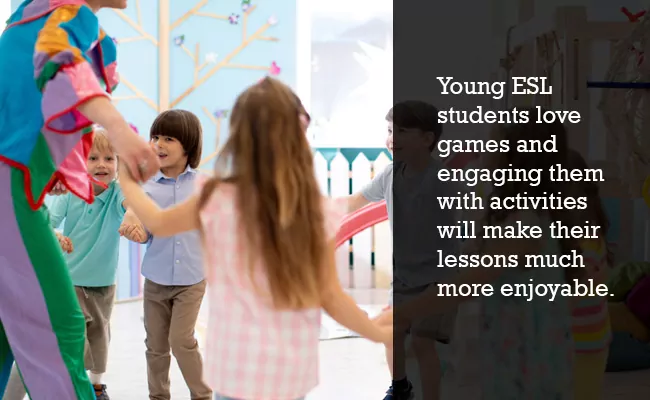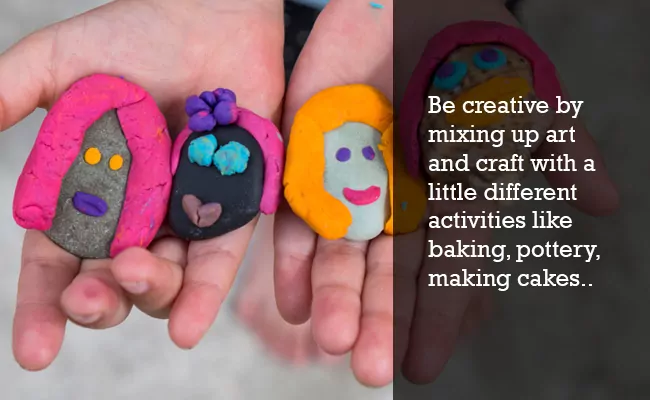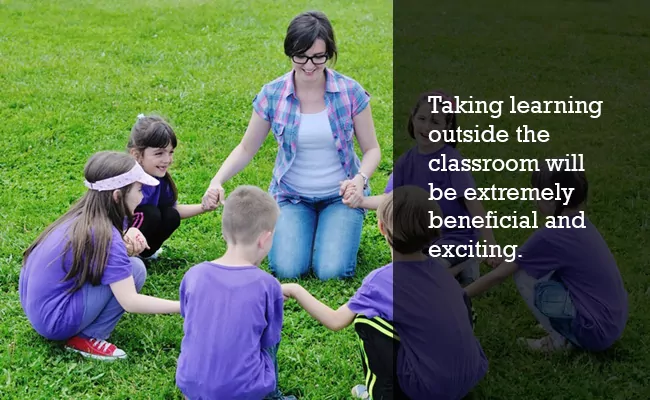
- By: Sarah Boon
- In: ESL Activities
In Hong Kong, parents are eager to get their children speaking English as young as possible, with most starting their ESL lessons at age 3. They start at a younger age than a lot of countries, and some new teachers may have reservations about teaching students this young. There is no need to worry as teaching young learners can be a lot of fun, and with few tips, it should be a breeze!
Tip 1: Use your body language
As the students will only speak limited English (some may only know a hand full of words) body language is universal, and is one of the most effective ways of communicating in the early stages. Let’s say you want them to pick up a book; You will need to show them picking up a book while saying it. You may need to do this more than once for them to understand. That’s okay, though, as long as you have a little bit of patience, they will be able to follow your instruction after a short amount of time.
Also Read: If you are dealing with A1 learners or beginners, here is an article with tips to prepare you!
Tip 2: Facial expressions are also helpful
Similar to body language, facial expression can be easily understood. Using your face is an effective way to communicate with ESL learners starting their English lessons. You may need to exaggerate facial expressions a little bit more than you would use with fluent English speakers for them to understand fully. It will also improve your communication with them further and assist them in developing their language skills.

Tip 3: Play exciting games with them
As some of the learners will still be very young in Hong Kong, they can be nervous for their first lesson as they are coming into an unfamiliar environment. The key to making them feel settled is to be as friendly as possible when you first meet them. A smile can go a long way when meeting your new young ESL learners for the first time. Also, make sure the first activity you have on offer is fun with no pressure. Getting out the toys or playing games is ideal to have some fun! It will help settle your students in no time and make them excited about their English learning journey.
Tip 4: Be active during the lessons
As children are full of energy when they are young, your lessons must be active! Playing games such as “Simon Says” is excellent for teaching verbs, e.g., “Simon says RUN, WALK and JUMP”. For vocabulary, flashcards are your friend. Once the vocabulary has been drilled, place the flashcards around the classroom and ask them to find the right flashcard. Examples would be “Find the Apple” and “Where is the orange”. Young ESL students love these games and will make their lessons so much more enjoyable for them!

Tip 5: Sing lots of songs
Songs are also your best friends when teaching the basics of English. There are some fantastic songs on YouTube, which helps them pick up English incredible quickly. The best YouTube channel for this is Super Simple Songs. They have countless tunes with engaging videos that accompany them. It is incredible how quickly they pick up the lyrics to these songs. Make sure you get your students to dance along with all the actions while they sing in English, it will really help them to reinforce the language.
Tip 6: Be creative
All kids adore being creative, so you should incorporate them into your English learning activities. I found this really helpful to mix things up a little bit from a standard lesson and to do something different to help with their learning. Crafts can range from assisting learners with their animal vocabulary to making gifts for Chinese new year. It also helps them with learning to follow instructions in English.
Tip 7: Also try different activities from the creative ones
You also don’t have to just stick to crafts for creativity. Where I worked in Hong Kong, we had baking lessons as a special treat. These lessons always worked fantastically well, and all of the students looked forward to them. You can make anything from cakes to biscuits! If you have time during the lessons, you can always decorate them to a seasonal theme! It is especially useful for Christmas and Easter. It’s an excellent opportunity also to share the culture of English speaking countries and just not the language! You must reward your young ESL students for their hard work, and baking treats it the perfect opportunity to do that!

Tip 8: Take learning outside the classroom
Now this one will depend on where you work in Hong Kong and if they will allow you to do this. Taking learning outside the classroom can be extremely beneficial. You must always remember to get permission, but getting your students to use English in the real world puts all your work together into practice and builds confidence in their English speaking skills. The trips are not difficult to carry out! I took some of my young learners to the local supermarket when we were learning about food. I would say the name of the food, and they would have to find it in the supermarket. We then paid for the food in English as well. They all had a great time learning English in this way.
Tip 9: Be positive and motivate your students
Young ESL learners also respond well to positivity, and they need lots of it to stay motivated. Every time they say a new word correctly congratulate them and give them a high five! When they are struggling, break down the task into smaller and more achievable chunks at first, to help them believe they can achieve. Even if you are teaching a point somebody is struggling with, make sure to encourage them that they can do it and show the student you believe in them.

Tip 10: Have fun with your teaching
My final piece of advice is to have fun during lessons with young learners. I always enjoyed lessons with young students as you can see them progress with their language abilities quickly. You have to show your students that you are having fun, as then they are more likely to feel the same way about attending your lessons. Also, students are a lot more engaged with their lessons when the teacher enjoys working with them, so this is crucial.
I hope that you find these tips useful and good luck helping your young learners excel as part of your TEFL adventure in Hong Kong.
Also Read:
- 5 Must-know ESL Games, Activities a TEFL Teacher Should Know
- 5 engaging tips to make your students love and learn English
This article was originally published on September 10, 2019 and was last updated on January 9, 2021.
Courses We Offer:

1. CertTESOL: Certificate in TESOL
A level 5, initial teacher training qualification for new and experienced teachers, enabling you to teach English anywhere in the world. The course is equivalent to Cambridge CELTA.
Learn More
Developed by our Trinity CertTESOL experts, for a comprehensive, self-paced learning experience. Earn an internationally recognized certificate and master essential teaching skills, accessible globally 24/7.
Learn More